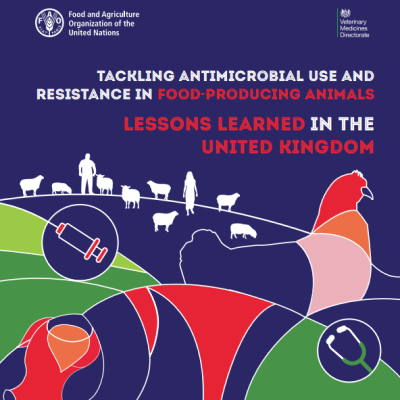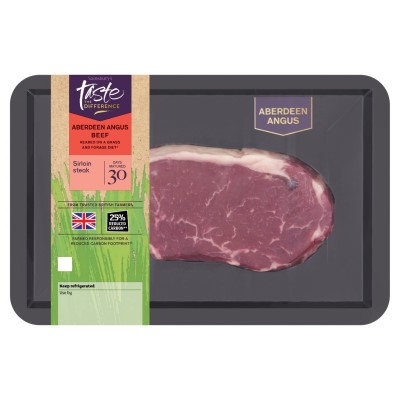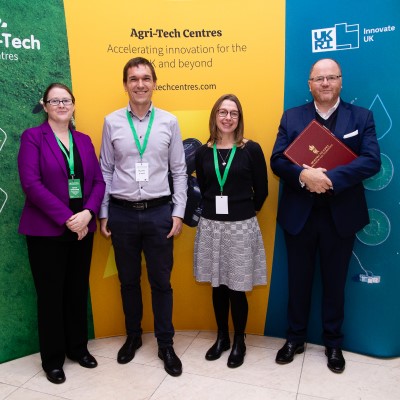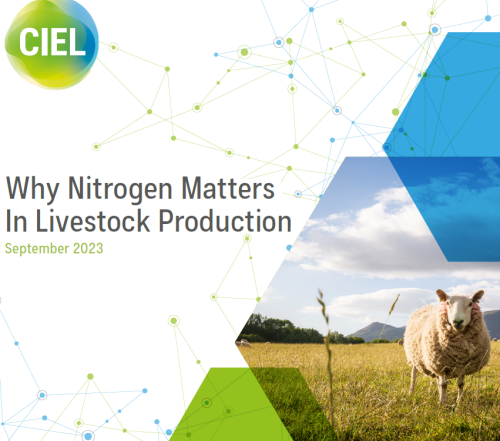CIEL | News: Multi-sectoral collaboration contributed to halving the sale of antibiotics in the UK livestock industry
Significant success in tackling antimicrobial resistance (AMR) in food-producing animals can be achieved if the livestock industry takes ownership of the issue and drives the work of its sectors, according to a new UK case study on AMR published on 29 September.
Produced jointly by the Food and Agriculture Organization of the United Nations (FAO) and the UK’s Veterinary Medicines Directorate (VMD), FAO’s Reference Centre for AMR this publication is the third in the AMR series.
This FAO series explores case studies from around the world and helps countries share what works to accelerate global progress in preserving valuable medicines and promoting sustainable agriculture practices. The new publication highlights the UK’s successful collaborative approach to antimicrobial stewardship, which has led to the country halving the sale of antibiotics for food-producing animals since 2014.
The publication identifies key factors for the UK’s success, such as building a strong relationship between farmers and veterinarians, setting targets tailored to the challenges of each livestock sector, and ensuring access to data for target setting and monitoring.
Other elements highlighted were the importance of clear and transparent communication, collaboration and committed leadership. As a result of the voluntary, collaborative approach, the United Kingdom is now one of the countries with the lowest antimicrobial consumption in Europe and one of the countries with a significant livestock industry.
Livestock products play a crucial role in feeding the ever-growing human population, so careful planning is needed to ensure sustainable food production and reduce the need for antimicrobials. At the heart of the UK’s strategy lies the importance of the One Health approach.








